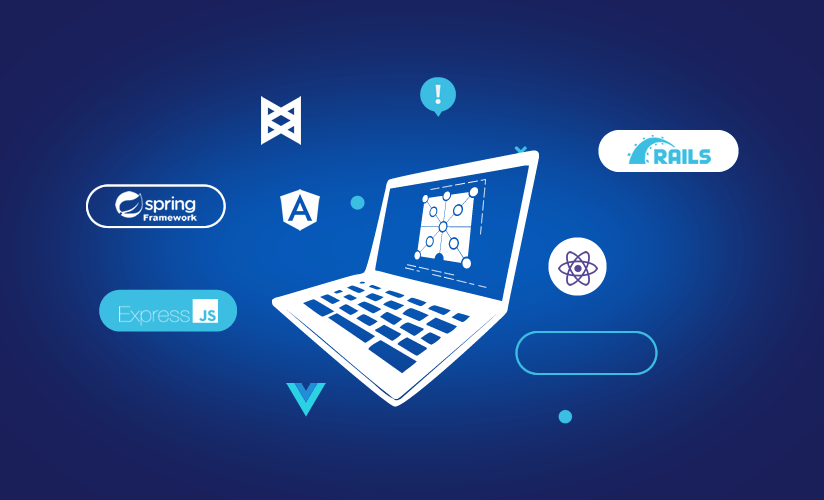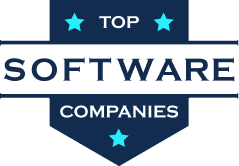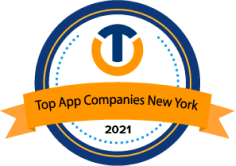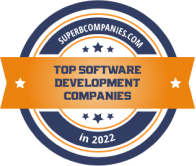Can Laravel be used for building Enterprise Apps?

Obviously, the scalability of Laravel is a big positive factor. It is also a framework that can build complex and multilayered apps with optimum ease of use. The solid MVC architecture makes it very easy to understand and deploy. Apart from these two mission-critical advantages, there are also several other reasons that go in favour of Laravel as a choice framework to build enterprise apps.Let us now explain all the important reasons for developers to prefer Laravel for big enterprise apps.
1) MVC Architecture Support
One of the important attributes of the Laravel framework is that it is based upon Model View Controller (MVC) architecture pattern that makes it easy to maintain optimum transparency between the app logic and presentation. MVC pattern also helps in boosting performance, making detailed documentation apart from offering many other accompanying features. Most important of all, MVC architecture helps in dealing with complexities which are so common in most enterprise apps.
2) Built-in Authentication Feature
The Laravel framework comes loaded with built-in authentication and authorisation feature to help the web apps quickly authenticating users based on the input. In building enterprise apps, where proper user authentication is always a priority issue, the developers get out of the box help from this framework.
3) Restful Routing
Enterprise apps always get loads of requests at a given time. To address such request load with quicker responses Laravel offers a very comprehensive and simple closure. This brings more adaptability to the routing and makes it simple enough to develop more interactive and responsive web apps. Such robust and restful routing makes Laravel ideal for building scalable enterprise apps.
4) Powerful ORM
Laravel comes with its own ORM which is very easy to use and well-equipped to manage and organise database apps. Thanks to this powerful and eloquent OR, it works very well with a gamut of database languages like MySQL, SQLite, Postgres and SQL Server.
5) Superb Documentation
Laravel as a framework is already appreciated widely for its orderly and robust documentation which is very detailed and precise. The documentation helps beginners as well as experienced Laravel developers for getting used to as well for getting any help they need in the development process.

6) Object-Oriented Libraries
Laravel is a framework widely known for being enriched with several Object Oriented Libraries apart from the inbuilt ones. The Laravel developers for the projects enjoy ready to use libraries and features such as Authentication library, CSRF (Cross-site Request Forgery) feature, an active user checking feature, encryption, and a feature for password reset. Such rich assets make Laravel ideal for enterprise app development projects. Let us have a look at the details of inbuilt Laravel assets.
- Modularity: Laravel offering a stunning 20 plus varied libraries allows great modularity. Thanks to such rich assets Laravel developers can build highly responsive, modular and useful web apps.
- Composer: Laravel comes with inbuilt composer allowing developers to install, update and manage all third-party packages seamlessly.
- Dynamic usability: Laravel as a framework comes with a robust and highly secure structure for API building. This works great to build hybrid web apps and for building scalable apps for small to large enterprise projects.
- Security: Laravel unlike many other web development frameworks doesn’t save the passwords as plain text in the database and uses the Bcrypt hashing algorithm for saving passwords.
7) Unit Testing
For large enterprise projects, ease of unit testing is a crucial requirement that Laravel ensures. It comes with a plethora of testing modules and is fully equipped to handle multiple modules. The framework already proved itself to be one of the most stable and flexible frameworks that don’t deviate from expected performance and flow of actions in spite of the updates.
Laravel and key enterprise app development trends
For the past several years enterprise app development is undergoing numerous changes and several trends have been unfolded. Laravel as a web development framework is often regarded to champion many of these trends and their respective causes. Let us briefly see how Laravel addresses these enterprise development trends. Laravel with built-in authentication features and Bcrypt hash-tagging proton for saving passwords is ideal for building enterprise-grade apps.

Priority over security and Laravel
In enterprise apps today, security now takes the centre stage as the cyber attacks are being more frequent and sophisticated in nature. According to recent studies, a whopping 86 % of web apps have serious vulnerabilities. As enterprise apps cannot afford such security issues, they need to embrace frameworks with a secure infrastructure and stringent security features.
Citizen development taking over
Building useful single feature apps quickly for instant uses is a trend pushing for citizen development. Instead of waiting for the IT department to come up with an added feature or a solution within the enterprise app, today’s users in a proactive environment can venture to build small apps themselves. Laravel with its easy to modularity, built-in features, flexibility, an easy to handle MVC architecture and very detailed documentation can help developers come with small and useful micro apps quickly.
Web and mobile-ready design by default
The responsive and mobile design has become so regular and everyday thing that soon the terminology can be extinct and can be referred to as the design itself. Laravel equipped to deliver only mobile ready design layout for enterprise apps irrespective of the size can easily be the ideal framework for enterprise apps of all sorts.
An increase in hybrid app adoption
Just with the growth of mobile users and demand for enterprise apps, there is a steep demand for hybrid apps. As it is challenging for most enterprises to build native apps that consume a lot of investment in terms of both time and money, building hybrid apps with a robust web development framework will be more popular. Laravel boasting of robust features for both native and web apps will enjoy more popular for future enterprise app development projects.
More power to front-end technologies
Finally, as the client-server model is being considered as backdated for slower performance, front-end technologies are continuing to be popular for developers. Laravel as a robust and fully equipped front-end development framework is likely to become more popular for building scalable and high-performance enterprise apps.
Using Laravel for Big Enterprise Apps
Laravel is widely referred to as the ideal development framework for building big enterprise apps. Just because of its unmatched scalability and flexibility it is equally suited for all apps irrespective of the size.
Laravel is better than PHP in many respects when it comes to the development of large apps. Once you have passed through the controller Laravel allows you to do anything you want with the app. It offers a really good dependency injection container. To handle complexity Laravel allows easy background job processing with a unique baked-in queue system. The framework also offers big app features like Event Broadcasting.
Now, let us cite real examples of the big enterprise apps built with Laravel. Several websites and apps with several hundred million page views are built with Laravel. From the likes of too many Fortune 500 company websites to major web ranking service like Alexa to the websites of world-famous games are run on Laravel.
Similar Posts

Best Web Development Frameworks In 2019
Frameworks have proven to be an indispensable part of the web development mix. As web application standards continue to rise, so does the complexity of the tech needed. However, it makes no sense to reinvent the wheel for such multifaceted technologies – that is if you can reinvent any of it. That is why using […]...

The 6 Steps of Software Product Development Life Cycle
The Software Product Development Life Cycle (SDLC) represents a structured approach to crafting software solutions, guiding them from conception to deployment and beyond. Each phase of the SDLC is crucial, providing a framework for teams to collaborate, innovate, and deliver high-quality products that meet user needs and business objectives. Among these phases, maintenance, and support […]...

10 Essential Features to Include in Your Custom CMS Development
Content Management Systems (CMS) have revolutionized the way websites are built, managed, and updated. While there are numerous off-the-shelf CMS platforms available, there are cases where a custom CMS is the better choice. Custom CMS development empowers businesses to tailor the system to their specific needs, resulting in enhanced control, performance, and user experience. In […]...






